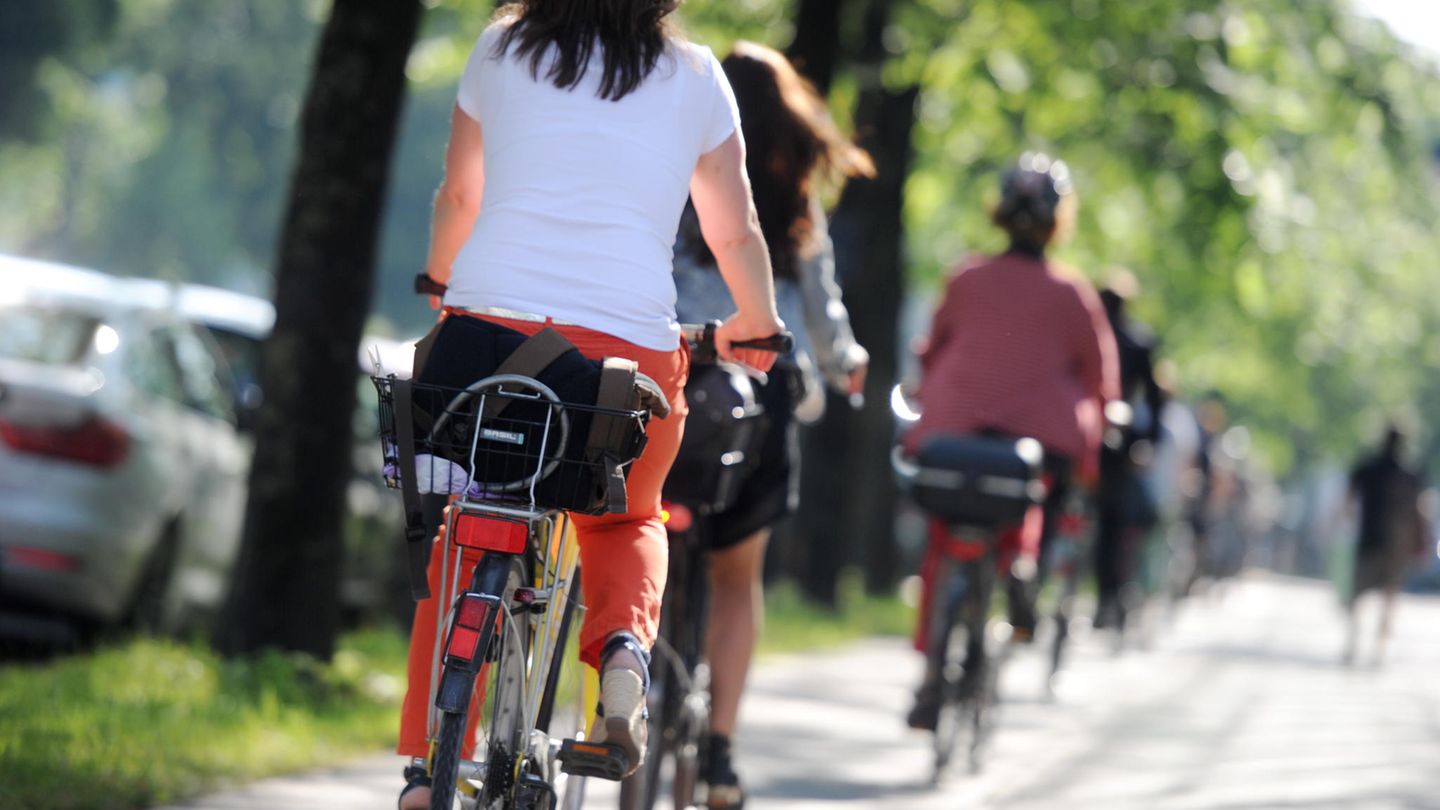Cycling is healthy and good for the climate. Only in bed does it no longer work on the male side? Whether there is really something to it and whether helmets increase the risk of accidents – a bike check.
Jump on the bike and off you go. To work, to go shopping, to a party. More than 80 percent of people in Germany use the bicycle as a means of transport – sometimes more often, sometimes less often. With World Bicycle Day on June 3rd, it’s time to reassess the validity of some statements about cycling.
Claim: Cycling makes you impotent.
Facts: Not universally tenable. However, an incorrectly selected or adjusted saddle and an unfavorable sitting position can lead to (temporary) erection problems in men. Ideally, the body weight is distributed over the two seat bones when sitting. When cycling, however, it happens that the seat constantly puts pressure on the perineum, which is the area between the scrotum and the anus. This can damage nerves and temporarily slow blood flow, which in turn can lead to erectile dysfunction.
You should choose a saddle that is wide enough to distribute the pressure on the areas around the two ischial tuberosities, advises the urologist Stefan Staudte in the “Sportärztezeitung”. In addition, a difference in height between the rear seat surface and the nose of the saddle is important.
Claim: More and more bikes are being stolen in Germany.
Facts: The statistics say otherwise. According to police crime statistics (PKS), around 266,000 bicycles were stolen in 2022. That was almost 14 percent more than in the previous year. But if you look at the numbers over the long term, you realize that just 20 years ago, significantly more bike thefts were reported – around 417,000. And in the mid-1990s there were almost twice as many as today (1994: around 530,000). However, the dark field is large. Those affected do not report the theft of their bike, for example, because they assume that the chance of clarification is low.
What is steadily increasing is the sum of insurance payments for stolen bikes. According to the General Association of the German Insurance Industry (GDV), insurers paid out more to insured persons for stolen bicycles in 2022 than ever before; it was around 140 million euros. Average damage of 970 euros each, also a high. GDV explains that thieves are targeting high-quality racing bikes, e-bikes or mountain bikes in order to resell them.
Claim: If there is a cycle path, you have to use it.
Facts: Incorrect. Cyclists must always ride on the right-hand side of the road. According to the Road Traffic Act (StVO), it is only compulsory to use a cycle path (separated from the carriageway) if it is marked with one of the three blue cycle path signs. However, if this is not appropriate, you can switch to the lane. On a cycle path without a sign, cyclists always have a choice.
shopping wheel
Civilized Cycles – e-bikes for non-cyclists
Claim: Bicycle helmets increase the risk of accidents.
Facts: Untenable. The assumption behind the claim: Anyone who wears a helmet drives more risky and is more likely to have an accident. Certain studies support this thesis. However, these often have methodological weaknesses – for example in the experimental design or comparison groups. A study from France, for example, came to the conclusion that men with helmets drive slightly faster than without. Here, however, very few drivers wore a helmet at all. In addition, the average speed of the riders without a helmet was unrealistically low. Other researchers explained in an article why the French study misinterpreted the data collected.
On the other hand, it is scientifically undisputed that well-fitting bicycle helmets effectively protect against head injuries. A large overview study commissioned by the transport ministries of Baden-Württemberg and Thuringia (2017) showed, among other things, that helmets can prevent 20 percent of all minor and 80 percent of all serious head injuries.
Source: Stern
I’m a recent graduate of the University of Missouri with a degree in journalism. I started working as a news reporter for 24 Hours World about two years ago, and I’ve been writing articles ever since. My main focus is automotive news, but I’ve also written about politics, lifestyle, and entertainment.




